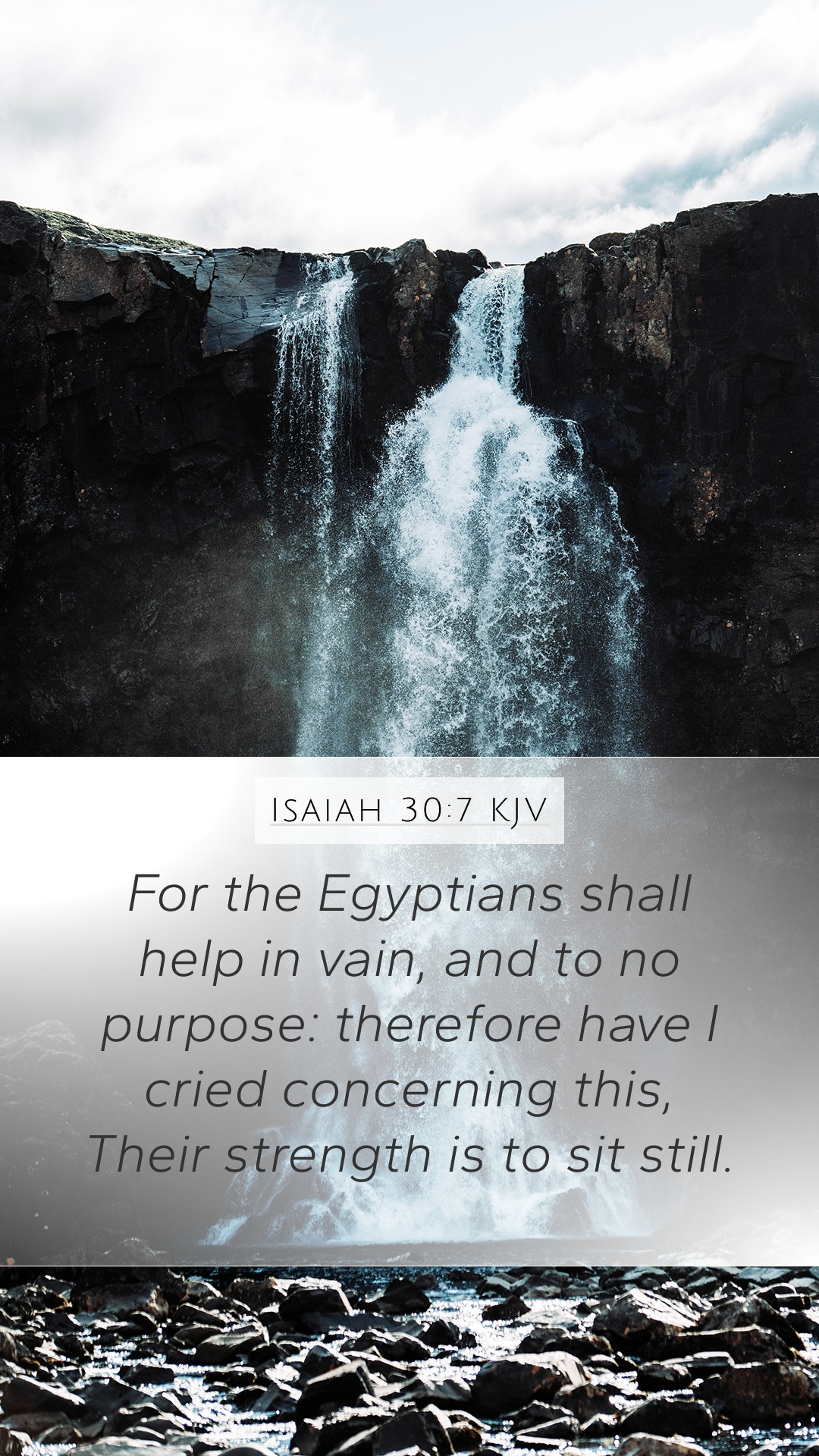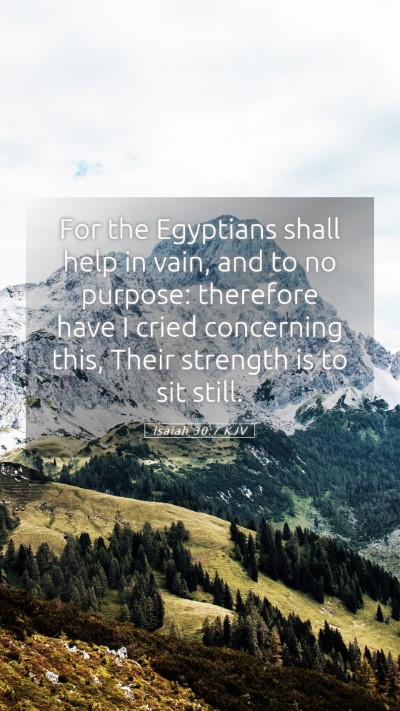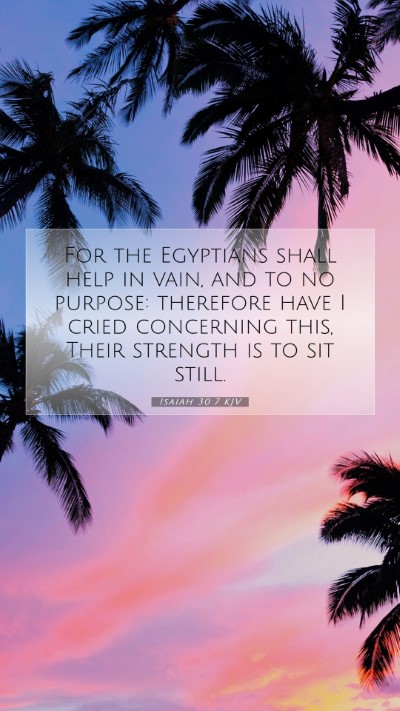Understanding Isaiah 30:7 - A Comprehensive Commentary
Isaiah 30:7 states, "For the Egyptians shall help in vain, and to no purpose: therefore have I cried concerning this, Their strength is to sit still." This verse speaks to the futility of relying on Egypt for support against impending threats. Below is an in-depth examination of this verse based on insights from public domain commentaries by Matthew Henry, Albert Barnes, and Adam Clarke.
Verse Analysis
Contextual Background
At the time of this prophecy, the nation of Judah was in a precarious situation, surrounded by enemies and facing potential destruction. The people sought to ally with Egypt, a major power, believing its military strength could save them. This plea is criticized by Isaiah, emphasizing the danger of placing faith in human alliances rather than trusting in God.
Exegesis and Commentary
-
Matthew Henry's Commentary:
Henry interprets this verse as a clear indication that relying on worldly powers for protection is ultimately fruitless. He highlights that the Egyptians, despite their might, would provide no real help to Judah in their time of need, as their support would prove to be ineffectual.
-
Albert Barnes' Analysis:
Barnes emphasizes the phrase "in vain," indicating that the help sought is not just ineffective, but completely useless. He stresses that the Israelites' trust in human alliances is a misguided priority, diverting them from reliance on God, which should be their true source of strength and support.
-
Adam Clarke’s Interpretation:
Clarke elaborates on the cultural and historical implications of this verse. He suggests that Egypt, often seen as a place of refuge, would ultimately betray Judah. The message reflects a divine admonition against misplaced trust—encouraging believers to seek God’s guidance instead of human solutions.
Thematic Insights
This verse encapsulates several critical themes for understanding Scripture:
- The Futility of Human Dependence: The text serves as a warning about relying on human strength and wisdom rather than divine intervention.
- The Call to Trust in God: Isaiah emphasizes the need for Judah to turn back to God, suggesting that true strength lies in faith rather than political alliances.
- The Consequences of Disobedience: Judah's acceptance of Egyptian help signifies a lack of faith and obedience to God's commands, illustrating the broader narrative of Israel's historical rejection of divine authority.
Application and Relevance
For believers today, Isaiah 30:7 instructs on how to approach challenges and decisions in life:
- Relying on God: In times of trouble, it is crucial to seek divine assistance rather than looking for earthly solutions that may lead to disappointment.
- Understanding God’s Promises: Encouragement can be found in trusting that God has plans for protection and provision, promising that He is present to aid His people.
- Teaching Moments: This verse is a reminder for Bible study groups on the importance of encouraging one another in faith rather than promoting reliance on worldly solutions.
Related Cross References
Isaiah 30:7 can be better understood in light of other Scripture passages:
- Isaiah 31:1: "Woe to those who go down to Egypt for help..." highlights the same theme of misplaced trust.
- Jeremiah 17:5: "Cursed is the man who trusts in man..." emphasizes the dangers of placing confidence in human strength.
- Psalms 20:7: "Some trust in chariots and some in horses, but we trust in the name of the Lord our God." This contrasts the reliance on human power against faith in God.
Conclusion
In summary, Isaiah 30:7 offers profound insights into the nature of faith and the importance of trusting in God over worldly alliances. Through this passage, believers are encouraged to cultivate a relationship with God that seeks His counsel and strength amid challenges. Understanding these themes is vital for anyone engaging in in-depth Bible study or seeking clarity on biblical principles. As we engage with Scripture, let us hold fast to the lessons of the past, ensuring that our hopes and trusts rest solely on God.


